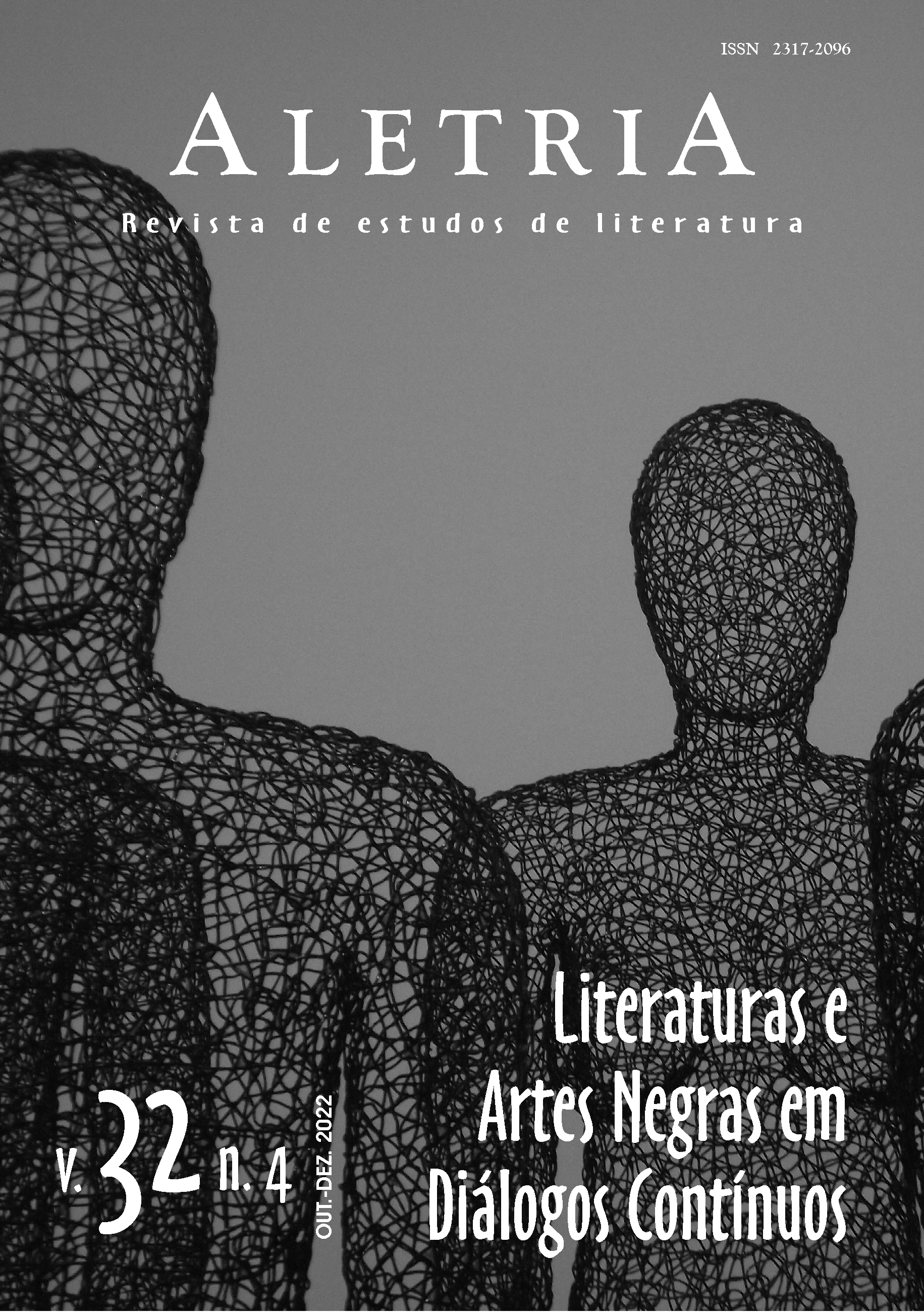Riso e crítica social no romance Europastraße 5 de Güney Dal
DOI :
https://doi.org/10.35699/2317-2096.2022.40443Mots-clés :
Güney Dal, Europastraße 5, comicidade, poderRésumé
Publicado em 1981, o romance Europastraße 5 de Güney Dal representa um importante documento para a construção de um imaginário ficcional sobre a literatura alemã do pós-guerra. Com foco na representação de imigrantes turcos, o romance encena a relação entre grupo dominante e minoritário, com interesse especial na confluência entre comicidade e poder. Com base no conceito de comicidade como mecanização (Bergson) e no conceito de riso como potencial de subversão (Bakhtin), este artigo deseja analisar duas esferas da interação social: num primeiro passo, o encontro com diferentes formas de autoridade, na sequência, a representação do espaço de trabalho. Nas duas esferas, o riso se insere na tradição da crítica social.
Téléchargements
Références
AKGÜNDÜZ, Ahmet. Germany’s Recruitment of Workers From Turkey, 1960–1973 – Some remarks. International Migration, v. 59, p. 234–237, 2021.
BAKHTIN, Mikhail. A cultura popular na Idade Média e no Renascimento: o contexto de François Rabelais. Tradução de Yara Frateschi Vieira. São Paulo: Hucitec, 1987.
BARTL, Andrea. Die deutsche Komödie: Metamorphosen des Harlekin. Stuttgart: Reclam Verlag, 2009.
BERGSON, Henri. O riso: ensaio sobre a significação da comicidade. Tradução de Ivone Castilho Benedetti. São Paulo: Martins Fontes, 2001.
CHAPIN, Wesley D. The Turkish Diaspora in Germany. Diaspora: A Journal of Transnational Studies, v. 5, n. 2, p. 275-301, 1996.
DAL, Güney. Europastraße 5. München: Piper Verlag, 1990.
EHRKAMP, Patricia. Placing Identities: Transnational Practices and Local Attachments of Turkish Immigrants in Germany. Journal of Ethnic and Migration Studies, v. 31, n. 2, p. 345-364, 2005.
ENGEL, Manfred. Der Process. In: ENGEL, Manfred; AUEROCHS, Bernd (eds.). Kafka-Handbuch. Leben – Werk – Wirkung. Stuttgart/Weimar: J. B. Metzler Verlag, 2010, p. 192-207.
GRAY, Richard T.; GROSS, Ruth V.; GOEBEL, Rolf J.; KOELB, Clayton. A Franz Kafka Encyclopedia. Westport/London: Greenwood Press, 2005.
GREINER, Bernhard. Die Komödie. Tübingen: Francke Verlag, 1992.
KIL, Wolfgang; SILVER, Hilary. From Kreuzberg to Marzahn. New Migrant Communities in Berlin. German Politics & Society, v. 24, n. 4, p. 95-121, 2006.
NAIL, Thomas. Borders, Migrants, and Writing. Konturen, v. 11, p. 152-173, 2020.
POKRYWKA, Rafal. Zwischen Stigmatisierung und Normalität. Positionen interkultureller Autor_innen im literarischen Feld (Kim, Flašar, Rabinovici, Stavarič). Studia Germanica Posnaniensia, v. 40, p. 101-114, 2019.
REISOĞLU, Mert Bahadir. The Impossibility of Return: Güney Dal and the Exilic Condition. Konturen, v. 11, p. 83-99, 2020.
RITCHIE, David. Frame-Shifting in Humor and Irony. Metaphor and Symbol, v. 20, n. 4, p. 275-294, 2005.
SARR, Mouhamed. De la littérature des travailleurs immigrés à la littérature des migrants: analyse d’un changement de perspective au plan formel et thématique dans la literature allemande à l’exemple de « Bitte nix Polizei. Eine Kriminalerzählung » (1983) d’Aras Ören et « Unter die Deutschen gefallen. Erfahrungen eines Afrikaners » (1992) de Chima Oji. Tese (Doutorado) – Curso de Literatura Alemã, Université Cheikh Anta Diop de Dakar, Dakar, 2019.
ŞEN, Faruk. The Historical Situation of Turkish Migrants in Germany. Immigrants & Minorities: Historical studies in ethnicity, migration and diaspora, v. 22, n. 2 & 3, p. 208-227, 2003.
ŞÖLÇÜN, Sargut. Literatur der türkischen Minderheit. In: CHIELLINO, Carmine (ed.). Interkulturelle Literatur in Deutschland. Stuttgart: J.B. Metzler Verlag, 2000, p. 135-152.
YANO, Hisashi. Migrationsgeschichte. In: CHIELLINO, Carmine (ed.). Interkulturelle Literatur in Deutschland. Stuttgart: J.B. Metzler Verlag, 2000, p. 1-17.
Téléchargements
Publiée
Numéro
Rubrique
Licence
(c) Copyright Dionei Mathias (Autor) 2022

Ce travail est disponible sous la licence Creative Commons Attribution 4.0 International .
Authors who publish with this journal agree to the following terms:Authors retain copyright and grant the journal right of first publication with the work simultaneously licensed under a Creative Commons Attribution Non-Commercial No Derivatives License that allows others to share the work with an acknowledgement of the work's authorship and initial publication in this journal.Authors are able to enter into separate, additional contractual arrangements for the non-exclusive distribution of the journal's published version of the work (e.g., post it to an institutional repository or publish it in a book), with an acknowledgement of its initial publication in this journal.Authors are permitted and encouraged to post their work online (e.g., in institutional repositories or on their website) prior to and during the submission process, as it can lead to productive exchanges, as well as earlier and greater citation of published work (See The Effect of Open Access).









